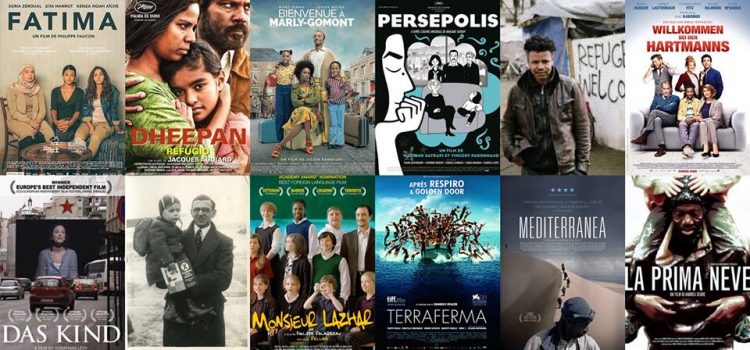
One of the partners of The Welcome Programme, Centro Studi Citta di Foligno, is involved in a very interesting EU project on media literacy for refugees.
RefugeesIN is funded by the Erasmus+ Programme and coordinated by AidLearn, Portugal. Partners are 5 organisations from Italy, Germany, Slovenia, Ireland and Greece.
Now that we are living a humanitarian calamity of historic proportions with individuals facing complex and painful processes adapting to European societies, films should more often convey refugees’ successful stories of social inclusion. But is it really so? Have the negative social beliefs about refugees been replaced by those of social inclusion more in tune with the evolution of multicultural societies? Are the achievements of former refugees, now well-included in EU societies, sufficiently visible to have a modelling role for the inclusion of newcomers?
In RefugeesIN, the outputs are primarily targeted at adult educators (of refugees), adult education providers, staff and civil society organisations, adult education and social inclusion specialists, and European film experts.
The project aims to raise public awareness on cohesive and inclusive societies, on the role of films in fostering social inclusion and how refugee communities can be addressed today. Our response: film education?
RefugeesIN offers an innovative cinema-based Pack (with Brochure, Film Catalogue, Course and Guide) for professionals to use to encourage intercultural dialogue, combat discrimination against refugees and promote their social inclusion.
Why films?
RefugeesIN uses films as a way to promote social inclusion. You might wonder why that is. Quoting Ebert, R., 2002 “They allow us to enter other minds, not simply in the sense of identifying with the characters, although that is an important part of it, but seeing the world as another person sees it.” Therefore, films allow us to place ourselves in another person’s shoes and be empathetic to their situation and struggles.
RefugeesIN and WELCOME
In the WELCOME project, we will use elements of the RefugeesIN course in our methodology, in particular in the bits on social inclusion of refugees and asylum seekers and how cinema and images can be used as a tool to raise awareness and stir solidarity. In WELCOME, we will produce digital stories, while in RefugeesIN adult educators produce short documentaries with their refugee students. However, there are certain similarities, such as the fact that in both cases a personal story is told, and it’s power to promote inclusion and understanding is explored.
Film Catalogue
The final 12 feature-length films have been decided: Fatima, 2015, by Phillipe Faucon; Dheepan, 2015, by Jacques Audiard; African Doctor, 2016, by Julian Rambaldi; Persepolis, 2007, by Vincent Paronnaud & Marjane Satrapi; Lampedusa in Berlin, 2015, by Mauro Mondello; Willkommen Bei Den Hartmanns!, 2016, by Simon Verhoeven; Das Kind, 2010, by Yonathan Levy; The Story of Sir Nicholas Winton, 2016, by Matej Minac; Monsieur Lahzar, 2011, by Philippe Falardeau; Terraferma, 2011, by Emanuele Crialese; Mediterranea, 2015, by Jonas Carpignano; First Snowfall, 2013, by Andrea Segre. You can read short synopses and comments for each one of them and also watch their trailers at Films.

Brochure: “From Escape to Belonging”
The Brochure “From Escape to Belonging” is now available! It includes 26 real-life stories of former refugees that succeeded in their host countries and are true role-models of social inclusion for newcomers. Also their inspiring journeys and their resilience challenge possible prejudice of the dominant culture. Now you can read their stories online at Brochure. And please share these amazing stories for the refugees’ voices to be heard throughout Europe!

If you want to know more…
Follow the official webpage or the Facebook page.
Leave a comment in the project’s blog or send an E-mail to europacstudi@gmail.com.
Altheo Valentini
